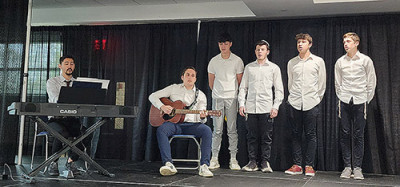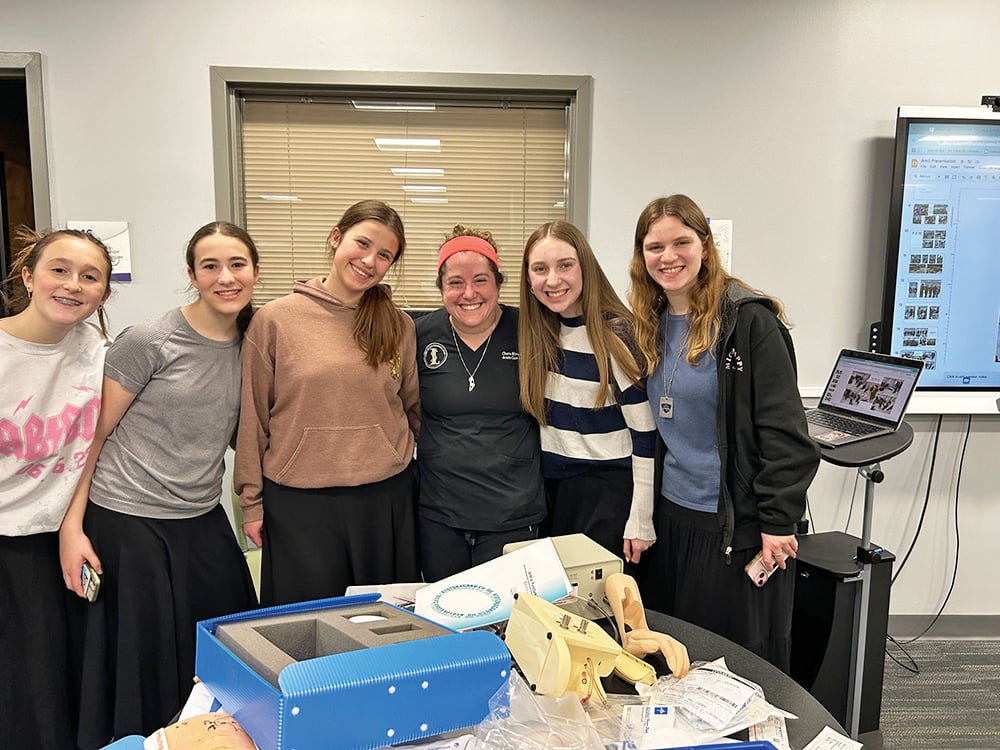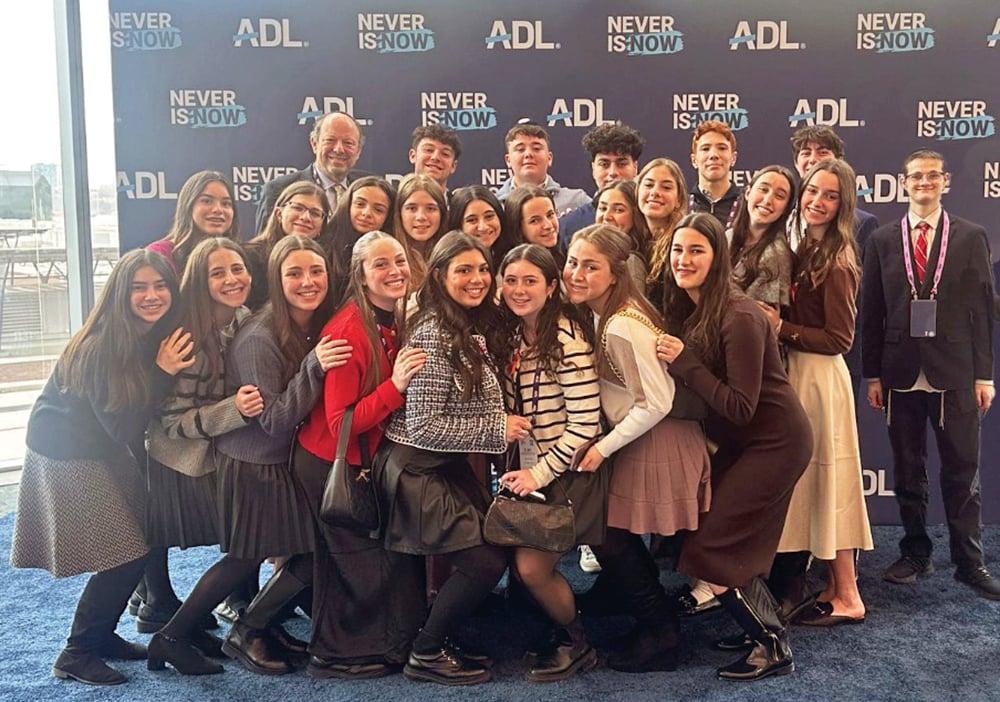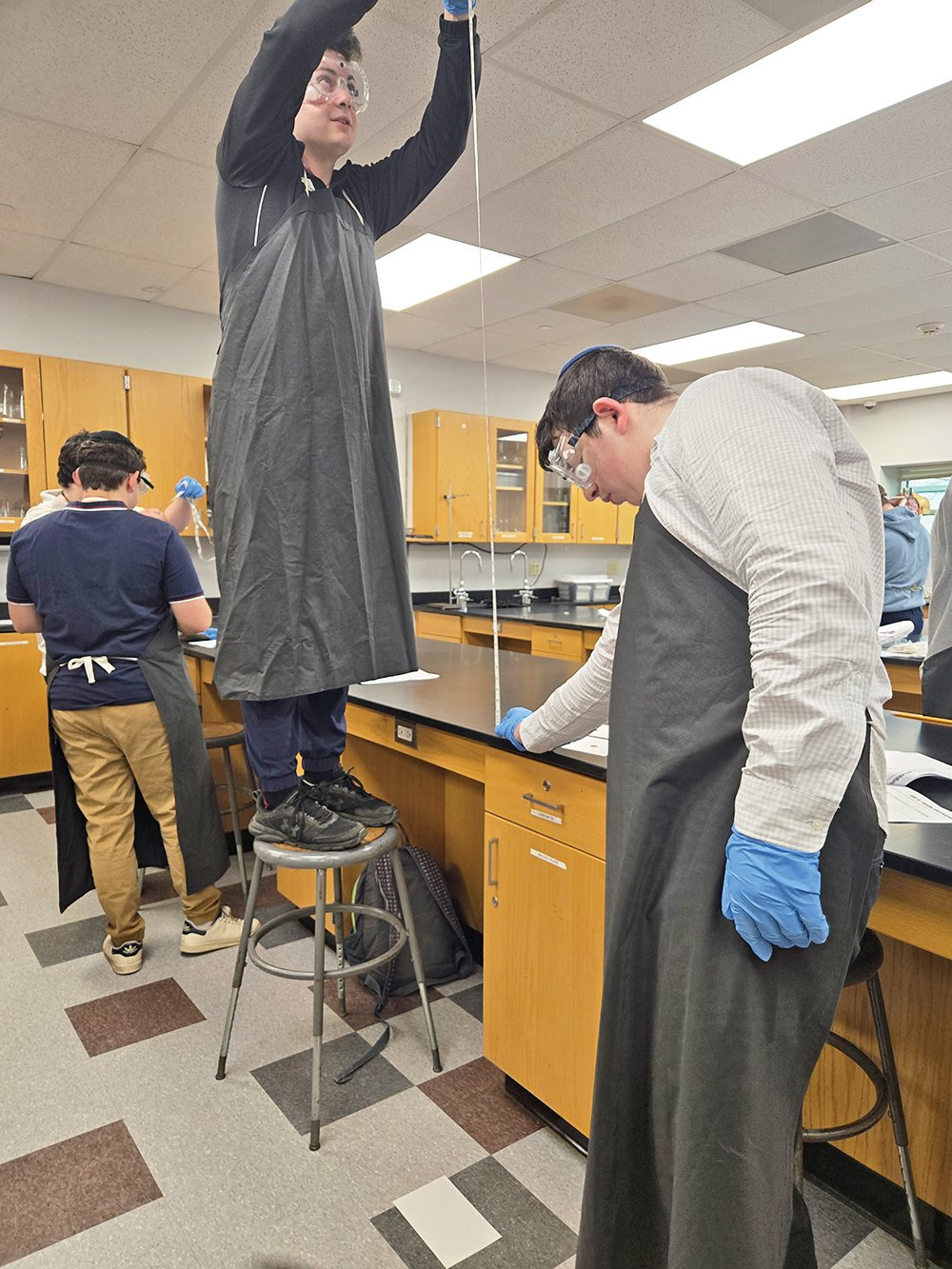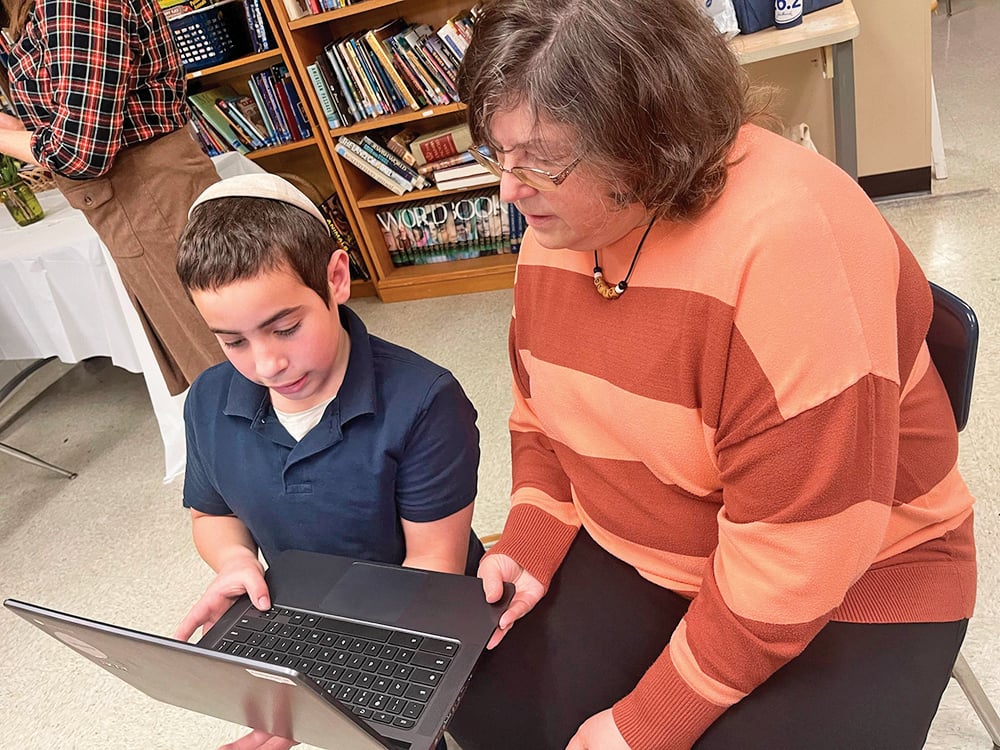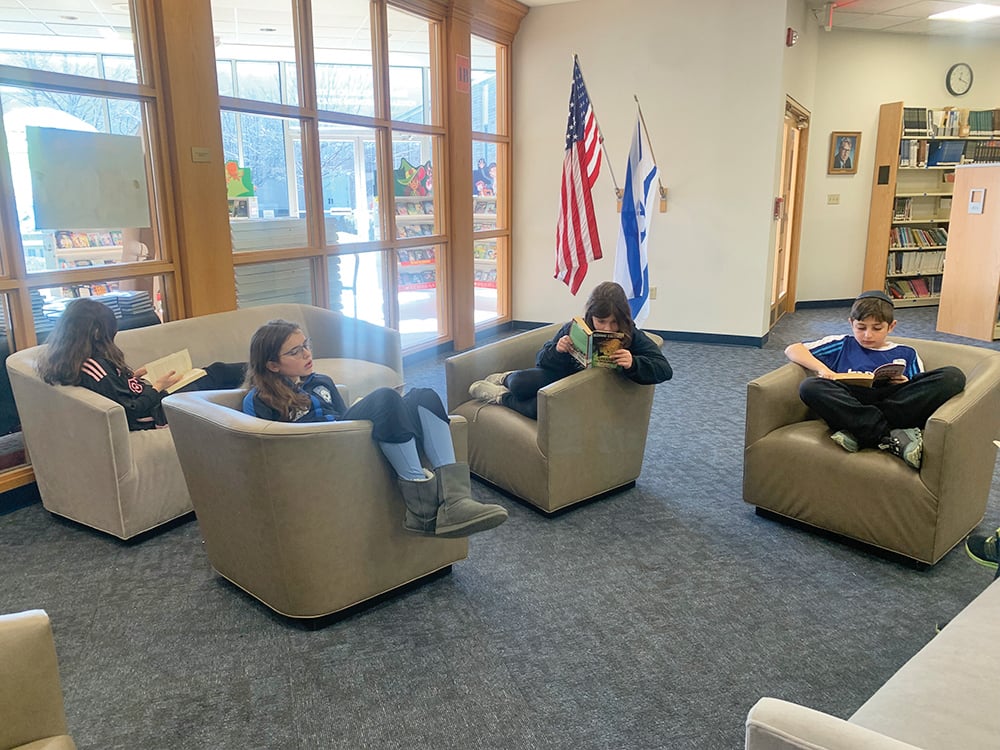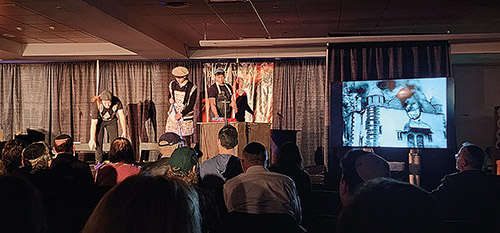
On Yom HaShoah, TABC students and faculty gathered together to commemorate the day with a meaningful program spearheaded by Donna Hoenig. Rafi Benedict, Yosi and Tzvi Gold, Eliezer Kravetz, Shua Schloss and Benny Zelig each told the story of a family member who had seen firsthand the horrors of the Shoah and lit a candle in their memories. Rabbi Ely Shestack sang a beautiful rendition of “In a Vinkle,” a chilling song in Yiddish praying that Hashem sees the horrors of the Shoah and remembers us as we have suffered. Reuven Goldberg, Eytan Goldstein, Kivi Davis, Netanel Kalb, Jacob Ostatcher, Avi Popper and Danile Zupnik, led by Studio 1600’s Jacob Spadaro, sang a beautiful rendition of “Ani Maamin.”
Finally, keynote speaker Marlit Berger Wendel addressed the audience as a 92-years-young survivor with a tale of survival and faith. As her parents were foreign born, her family was exiled out of Germany in 1938 at a time when no foreign countries wanted to take in any Jews. Luckily they were taken in by a Polish village where they were put up in several homes, but alas that village was eventually liquidated and all occupants sent to various concentration camps. She and her sisters managed to stay together through nine concentration camps by not letting on that they were related. Had the Germans realized, they would have been separated right away as a way to break down their will to live. After the war, her family was sent to Switzerland to a rehabilitation camp and eventually made their way to the United States where they rebuilt their lives. Mrs. Wendel has been blessed to have children, grandchildren and great grandchildren. Her book, “Nourished By Faith,” contains the details of her story and her inspiring message of faith. The program concluded with a moving “Kel Maleh Rachamim” recited by Rabbi Raphi Mandelstam.
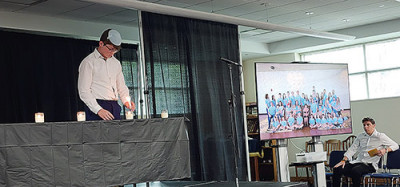
Later in the week, TABC’s Holocaust Studies class, taught jointly by Cary Reichardt, chair of TABC’s history department, and Rebecca Lopkin, TABC’s director of performing arts, presented its annual Bare Witness production to a full house. This year’s production was a dramatic retelling of four stories of survival which included both pre-recorded and live performances by the students in the class.
In addition to learning about the history of the Holocaust, students, many of whom never knew a grandparent or great-grandparent who was a survivor, had multiple opportunities to meet with Holocaust survivors, listen to their experiences, and ask them their own questions. As time with survivors is running short, it is more important than ever that we cultivate a new generation of witnesses. TABC hopes its students will be able to tell their children and grandchildren that they met a survivor, and they remember their story, ensuring the memories of both survivors and those who perished is never forgotten.
